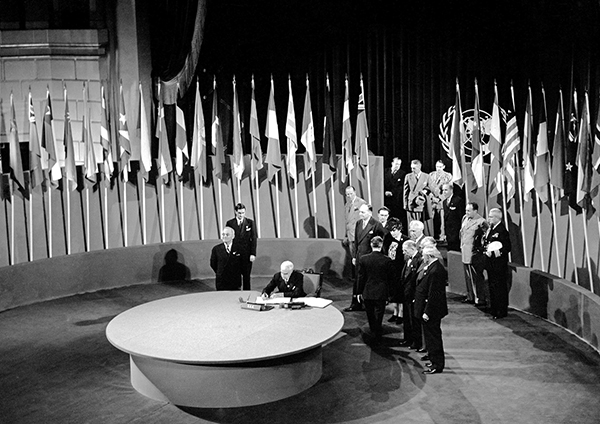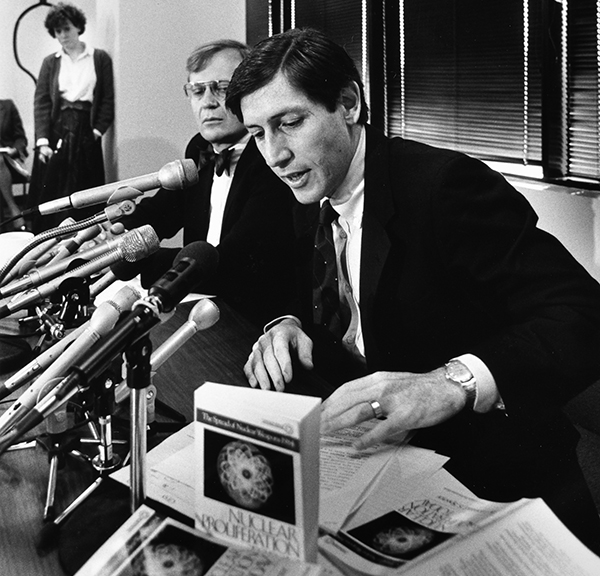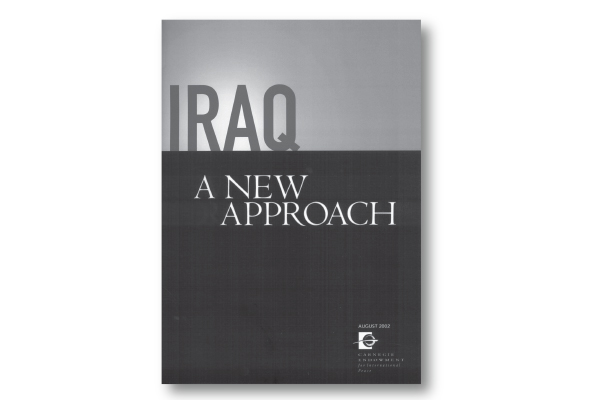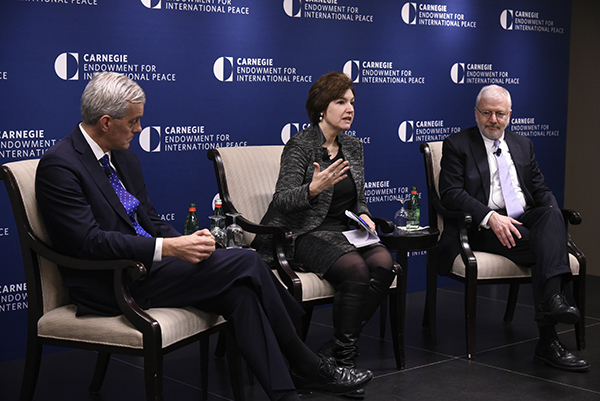Our Story
Since its founding, the Carnegie Endowment has empowered generations of world-class policy experts producing research and actionable ideas to address the world’s most challenging problems.
Our Story
Since its founding, the Carnegie Endowment has empowered generations of world-class policy experts producing research and actionable ideas to address the world’s most challenging problems.
A Long History
In 1910, Andrew Carnegie—then one of the richest people in the world after the sale of Carnegie Steel to J.P. Morgan—gifted $10 million to create the Carnegie Endowment for International Peace: a new institution that would promote international cooperation by advancing knowledge and building relationships around the world. Alluding to the risks that would trigger the devastation of World War I four years later, he sought to “hasten the abolition of war, the foulest blot upon our civilization.” That vision continues to guide the Carnegie Endowment more than a century later, as it provides decisionmakers independent research and strategic policy ideas for building the world’s capacity to address the most pressing international challenges and advance peace.
Since its founding, the Carnegie Endowment has empowered generations of world-class policy experts producing research and actionable ideas to help address the world’s most challenging problems. In addition to its offices in Washington, DC, Carnegie has established global centers in Asia, Beirut, Brussels, and New Delhi. As a uniquely global think tank, Carnegie leverages its network of over 150 experts to better understand the threats and opportunities affecting global security and well-being, and to prepare the next generation of foreign policy leaders through training and mentorship. By convening strategic dialogues and back-channel diplomacy, Carnegie helps deepen and strengthen the relationships between international actors as they pursue solutions to complex and contentious issues.
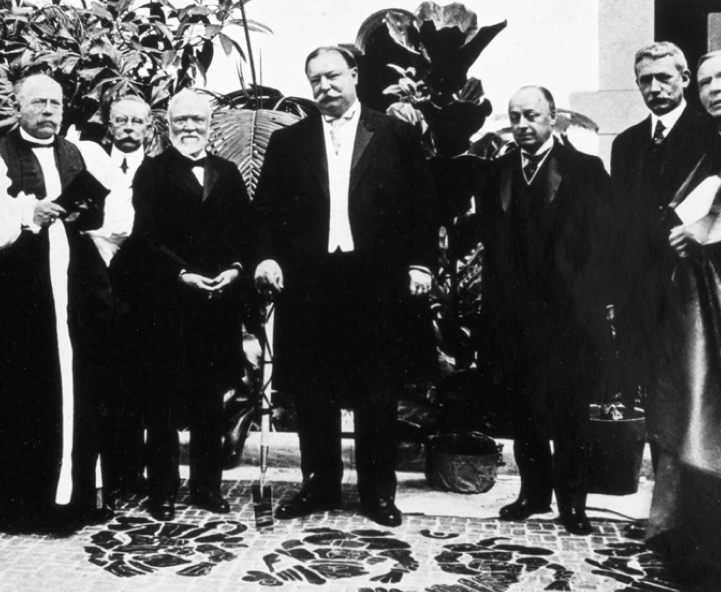
Through its research and initiatives, the Carnegie Endowment has made lasting contributions to global cooperation and prosperity over the years
Through its research and initiatives, the Carnegie Endowment has made lasting contributions to global cooperation and prosperity over the years
In 1945, former Carnegie president James T. Shotwell led a delegation of advisers to the conference where the United Nations charter was drafted. Shotwell persuaded the U.S. delegation to insert an amendment in the draft UN charter that established the permanent UN Commission on Human Rights. “I have never had a more inspiring experience,” Shotwell reflected in his autobiography, “than that of helping, at last, to weld [our] aspirations for peace into a world-wide organization.”
Beginning in the 1970s, the Carnegie Endowment developed a long-term agenda for the reduction of nuclear security risks, focusing on bilateral and multilateral negotiation as the best means of reducing the threat posed by nuclear weapons. In subsequent decades, Carnegie became the premier authoritative source of expertise on nonproliferation.
In 2002, Carnegie took an active role in assessing and helping to shape the U.S. responses to the threat of terrorism following the September 11, 2001, attacks. In the run-up to the Iraq War, the endowment convened a working group to develop a set of unique proposals for a robust weapons of mass destruction inspections regime that might stop the slide toward war. UN Resolution 1441 incorporated several of the working group’s recommendations.
In 2018, Carnegie launched a multi-year research effort dedicated to developing a foreign policy that better meets the needs of America’s middle class. The bipartisan Middle Class Task Force undertook case studies in Ohio, Nebraska, and Colorado, working with local partners to delve into the perceptions and aspirations of the American middle class and the U.S. role in a globalized world. The task force concluded with a report that helped form the basis of President Joe Biden's reinvigorated foreign policy. It continues to provide a guidepost for decisionmakers at the White House, the State Department, and in governments of other developed economies.
In 1945, former Carnegie president James T. Shotwell led a delegation of advisers to the conference where the United Nations charter was drafted. Shotwell persuaded the U.S. delegation to insert an amendment in the draft UN charter that established the permanent UN Commission on Human Rights. “I have never had a more inspiring experience,” Shotwell reflected in his autobiography, “than that of helping, at last, to weld [our] aspirations for peace into a world-wide organization.”
Beginning in the 1970s, the Carnegie Endowment developed a long-term agenda for the reduction of nuclear security risks, focusing on bilateral and multilateral negotiation as the best means of reducing the threat posed by nuclear weapons. In subsequent decades, Carnegie became the premier authoritative source of expertise on nonproliferation.
In 2002, Carnegie took an active role in assessing and helping to shape the U.S. responses to the threat of terrorism following the September 11, 2001, attacks. In the run-up to the Iraq War, the endowment convened a working group to develop a set of unique proposals for a robust weapons of mass destruction inspections regime that might stop the slide toward war. UN Resolution 1441 incorporated several of the working group’s recommendations.
In 2018, Carnegie launched a multi-year research effort dedicated to developing a foreign policy that better meets the needs of America’s middle class. The bipartisan Middle Class Task Force undertook case studies in Ohio, Nebraska, and Colorado, working with local partners to delve into the perceptions and aspirations of the American middle class and the U.S. role in a globalized world. The task force concluded with a report that helped form the basis of President Joe Biden's reinvigorated foreign policy. It continues to provide a guidepost for decisionmakers at the White House, the State Department, and in governments of other developed economies.
Our Global Presence
In addition to its offices in Washington, DC and California, Carnegie has established global centers in Asia, Beirut, Berlin, Brussels, and New Delhi. As a uniquely global think tank, Carnegie leverages its network of over 170 experts to better understand the threats and opportunities affecting global security and well-being, and to prepare the next generation of foreign policy leaders through training and mentorship.
By convening strategic dialogues and back-channel diplomacy, Carnegie helps deepen and strengthen the relationships between international actors as they pursue solutions to complex and contentious issues.
Carnegie China
Leading scholars from across China connect with international Policy Experts and practitioners to research Beijing’s evolving approached to economics, security, and global governance. China-focused programs support dialogue and collaboration among the next generation of Chinese and American leaders.
Read MoreCarnegie Europe
Established in 2007, Carnegie Europe continues to be a trusted source on European foreign and security policy. Through its diverse network of international scholars, Carnegie Europe provides independent and relevant research and recommendations on a wide range of thematic areas at the core of international and European affairs including decoding the integration path of the European Union, European democratic reform, the domestic and global challenges of climate change policy, Europe’s international relationships, and the potential regeneration of transatlantic relations.
Read MoreCarnegie India
Founded in April 2016, Carnegie India has already captured the attention of policymakers in India and around the world. Led and staffed by Indian experts, the center is building on decades of Carnegie research and has a growing network of contributors across South Asia. Its work concentrates on the political economy of reform in India, the country’s foreign and security policy challenges, and the role of technological innovation in India’s internal transformation and international relations.
Read MoreCarnegie Middle East Center
Founded in 2006, the Malcolm H. Kerr Carnegie Middle East Center in Beirut stands out in the region for its deep research and thoughtful, nonpartisan dialogue. The center’s scholars come from across the region, including Algeria, Egypt, Iraq, Lebanon, Palestine, Syria, and Yemen. With the Arab world under-going unprecedented change, the center examines both the internal and cross-border political, economic, and ideological challenges facing the region and the role of world powers in bringing stability.
Read MoreCarnegie Russia Eurasia
The Carnegie Russia Eurasia Center in Berlin, Germany is home to the world’s leading experts on Russia and the wider region. The center’s scholars and digital media platform, Carnegie Politika, deliver independent analysis and strategic insight that are not available anywhere else. The Carnegie Russia Eurasia Center focuses on major policy challenges across the entire region in the wake of Russia’s unprovoked invasion of Ukraine.
Read More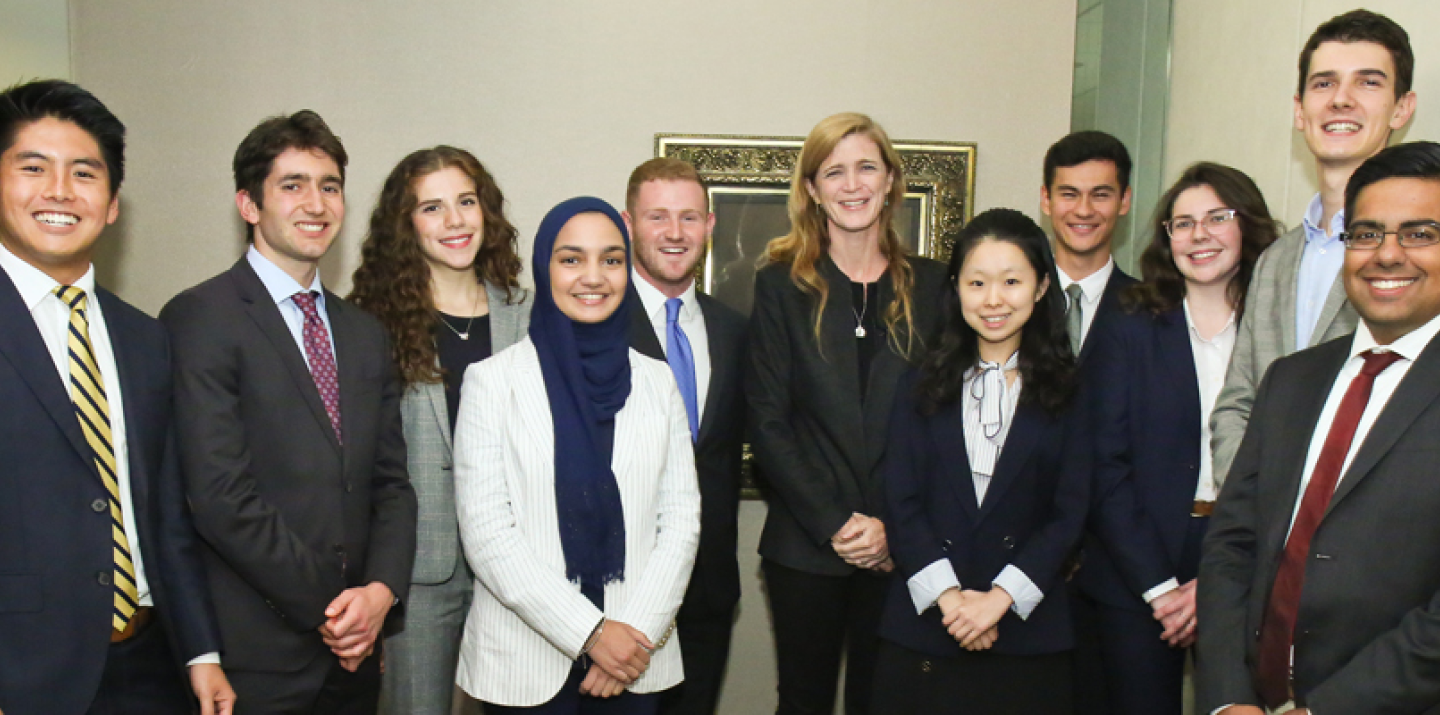
Shaping a New Generation
Carnegie has long been committed to training the next generation of scholar-practitioners working on global challenges.
Global Issues, Global Leaders
The Carnegie Endowment is committed to providing nonpartisan analysis on and engagement with global issues. Former and future policy practitioners from across the political spectrum have found it a welcoming place to test and sharpen their ideas and civilly engage with those who hold opposing views. Scholars and experts from Carnegie have served in nearly every administration since the endowment’s founding. Members of the Board of Trustees over the years have included former president Dwight Eisenhower, former secretaries of state Elihu Root (who was also awarded the Nobel Peace Prize) and John Foster Dulles, Nobel Peace Prize recipient Nicholas Butler, former senator Bill Bradley, former World Bank president and U.S. trade representative Robert Zoellick, Director General of the World Trade Organization Ngozi Okonjo-Iweala, and former commerce secretary Penny Pritzker.
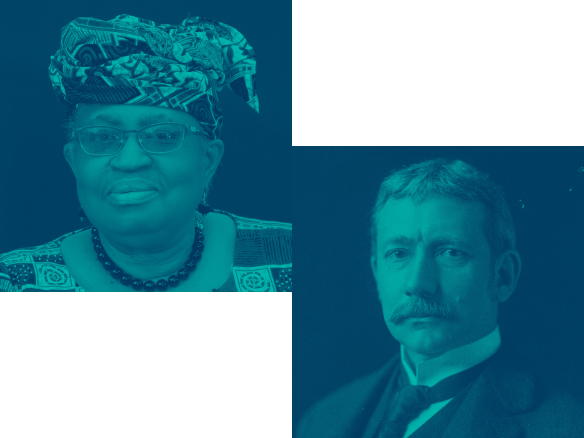
Moving Forward
For more than a century, the Carnegie Endowment has embodied the values of integrity, cooperation, diplomacy, independence, innovation, and candor in its efforts to foster a more peaceful and prosperous world. As the world navigates changes in geopolitics, demographics, technology, and society, Carnegie’s experts at centers around the world contribute to a global conversation about the key issues of the era. Their work constitutes a lasting investment in seeking international cooperation through policy-oriented research, innovative ideas, international dialogue, and preparing the next generation of scholar-practitioners.
.png)
